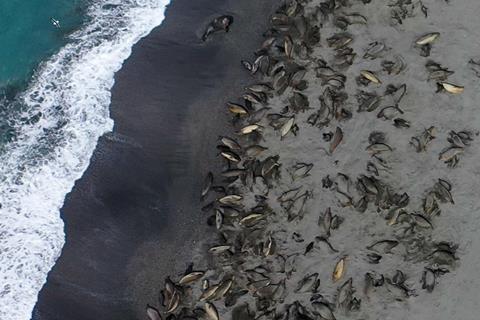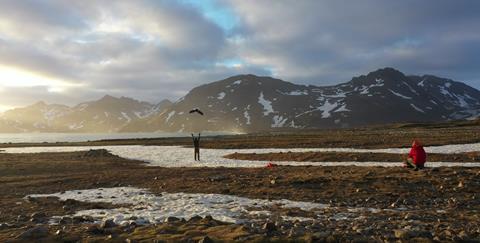South Georgia’s breeding population of female southern elephant seals (Mirounga leonina) may have been halved by highly pathogenic avian influenza virus (HPAIV), finds research published in Communications Biology. The authors suggest that these losses may reduce the number of surviving seal pups and threaten the security of the island’s breeding population.

The island of South Georgia in the South Atlantic Ocean harbours the world’s largest southern elephant seal population, accounting for around 54% of the global breeding population at the last population count in 1995. HPAIV caused mass mortalities in marine mammals and seabirds across South America, including a 67% decline in the female elephant seal population of Argentina’s Valdés Peninsula. The virus spread to South Georgia in 2023.
READ MORE: New RSV vaccines on the way - so what do we do about vaccine hesitancy?
READ MORE: Sewage could act as early warning system for influenza A outbreaks
Connor Bamford and colleagues monitored elephant seal populations at breeding colonies across South Georgia using aerial imagery collected from three beaches — St Andrews Bay, Hound Bay, and Gold Harbour — during the 2022 and 2024 breeding seasons. They compared these populations, which collectively accounted for 15.6% of the island’s elephant seal population in the 1995 population count, to long-term average counts conducted between 1958 and 2022.
Sharp declines
The authors observed a 33.7% decrease in the projected number of females on South Georgia in 2024 relative to the long-term average, with a 47% decline in the number of breeding females present across the three specific beaches between 2022 and 2024. Scaled up to the entire island’s population, the authors estimate that approximately 53,000 females were absent from the 2024 breeding season. They propose that the scale of this population loss is comparable to avian flu outbreaks observed at the Valdés Peninsula in 2023.

The authors speculate that the observed population losses due to direct HPAIV mortalities may be worsened by afflicted females becoming physically stressed, causing them to prematurely abandon their pups. They propose that these abandonments could have longer-term impacts on population size.
They recommend sustained monitoring of breeding colonies to assess the longer-term impacts of HPAIV on the health of the elephant seal population on South Georgia.







No comments yet